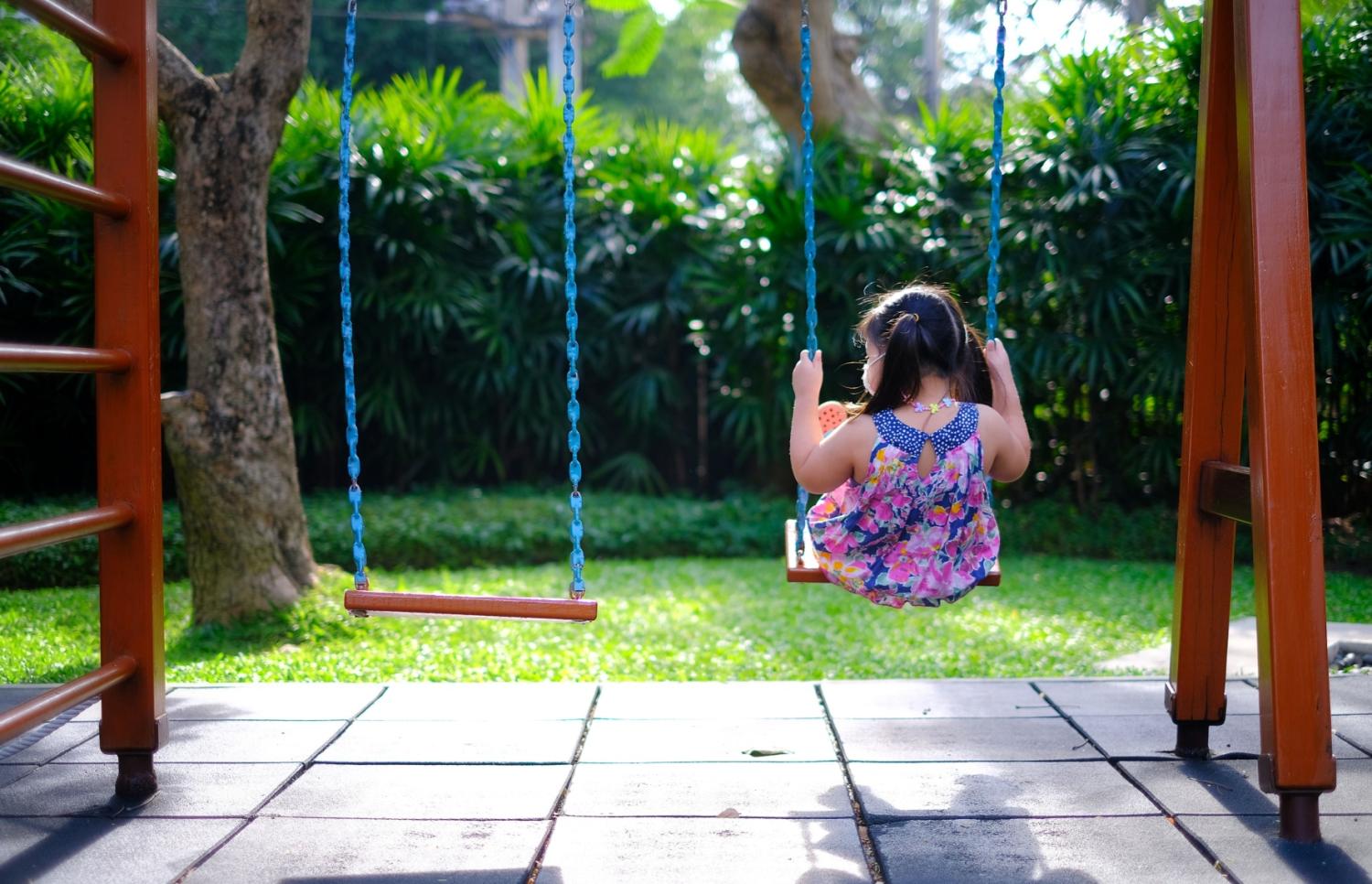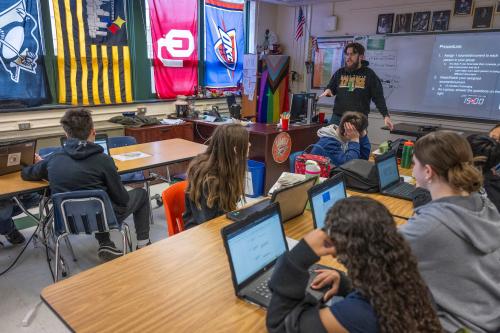The paper summarized here is part of the fall 2025 edition of the Brookings Papers on Economic Activity, the leading conference series and journal in economics for timely, cutting-edge research about real-world policy issues. Research findings are presented in a clear and accessible style to maximize their impact on economic understanding and policymaking. The editors are Brookings Nonresident Senior Fellows Janice Eberly and Jón Steinsson.
See the fall 2025 BPEA event page to watch paper presentations and read summaries of all the papers from this edition. Submit a proposal to present at a future BPEA conference here.
“Momfluencers” and other social media phenomena that encourage parents to compare their children to other parents’ children are fueling an expensive educational arms race that may be contributing to record-low global fertility, suggests a paper discussed at the Brookings Papers on Economic Activity (BPEA) conference on September 26.
“When parents care about their children’s educational outcomes relative to those of others, this can lead to high private investment in education,” such as after-school tutoring and standardized test preparation classes, write the authors, Lukas Mahler of KU Leuven, Michèle Tertilt of the University of Manheim, and Minchul Yum of Virginia Commonwealth University. “As a result, children become both expensive and time intensive, which naturally depresses fertility.”
Their paper notes that throughout much of the 20th century policymakers were primarily concerned about the effects of overpopulation. But in recent years, as the global fertility rate has declined to a record low, policymakers have shifted to worrying about too few babies rather than too many.
Now, nearly half of all countries have fertility levels below replacement level (2.1 children per woman), and it is conceivable the world population will start shrinking in the near future, the authors note. That raises concerns about the sustainability of Social Security and other government transfer programs.
The authors developed a model to examine social comparison motives and fertility choices across countries and across regions within the United States. They found that countries and regions with greater comparison motives—proxied by greater social media exposure, higher college admission competitiveness, or more-intensive parenting styles—had lower fertility rates.
The authors acknowledge that education is a way to increase human capital. However, some educational spending, such as excessive after-school tutoring, may not meaningfully increase human capital. Rather, it may be primarily for “signaling purposes” to increase a child’s chances of entering a selective college, according to the authors. That, they assert, can drain parents’ time and finances and harm children’s mental health.
“Wasteful spending may have increased … in recent decades, particularly in East Asian countries,” the authors write. “…For the children, the flip side of excessive study time is reduced time outdoors, less physical activity, and often insufficient sleep—all of which are important for healthy development.”
“We are talking about 10-year-olds studying until midnight,” Tertilt said in an interview with the Brookings Institution. “It is an arms race in education, leading to a lot of education and a lot of expense but not all of the education is useful.”
The authors examine several policy approaches to curbing the arms race. China, for instance, essentially banned for-profit tutoring providers in 2021 and Korea has implemented curfews for after-school tutoring. Great Britain this year ended its value-added-tax exemption for private schools. Another possibility is reducing the emphasis on college admission tests such as the SAT and ACT.
In the United States, however, recent changes to 529 plans (tax-advantaged savings accounts for higher education expenses) may work in the opposite direction, the authors note. The One Big Beautiful Bill Act increased limits on 529 withdrawals and broadened the definition of qualified expenses to include tutoring outside the home and fees for nationally standardized tests.
Lastly, the authors write, “the impact social media has on comparison motives should perhaps be taken into account when regulating social platforms.”
CITATION
Mahler, Lukas, Michèle Tertilt, and Minchul Yum. 2025. “Policy Concerns in an Era of Low Fertility: The Role of Social Comparisons and Intensive Parenting.” BPEA Conference Draft, Fall.
-
Acknowledgements and disclosures
David Skidmore authored the summary language for this paper. Chris Miller assisted with data visualization.
The Brookings Institution is committed to quality, independence, and impact.
We are supported by a diverse array of funders. In line with our values and policies, each Brookings publication represents the sole views of its author(s).





